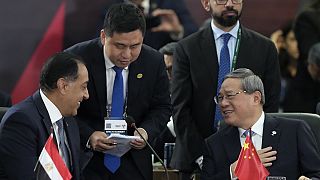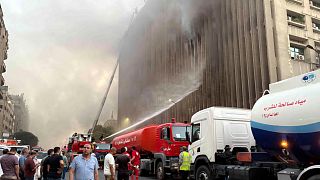Egypt
In response to the United Nations Security Council's resolution calling for a Gaza cease-fire, Mahmoud al-Aloul, vice president of the Fatah Movement, emphasized the critical next 48 hours to determine Israel's adherence to the resolution.
Al-Aloul expressed skepticism about Israel's compliance, stating, "it is frankly expected" that Israel will not adhere to the resolution.
Speaking during a visit to Cairo, Al-Aloul's remarks underscored the urgency of halting the violence in Gaza. He warned against the continuation of hostilities, citing the potential for further tragedy akin to the Oct. 7 attack, where Hamas militants targeted communities in southern Israel, resulting in significant casualties and abductions.
Israeli Prime Minister Benjamin Netanyahu's dismissal of the resolution and vow to press ahead with the conflict further fueled tensions. Al-Aloul condemned the ongoing violence, labeling it an "extraordinary injustice" that risks exacerbating the humanitarian crisis in Gaza.
Amidst calls for peace, Al-Aloul advocated for a political solution, emphasizing the importance of a two-state solution to provide hope for Palestinians. He called for increased Arab support and engagement to address the escalating situation in Gaza.
Al-Aloul's visit to Egypt with members of Fatah's central committee highlights regional efforts to address the Gaza crisis. During meetings with Arab League Secretary-General Ahmed Aboul Gheit, Al-Aloul reiterated the imperative of international intervention and support to achieve a lasting cease-fire and pave the way for a political resolution to the conflict.













01:16
Joint visit of Church leaders to Gaza after deadly Church attack on Thursday
01:36
12 countries adopt measures to pressure Israel to end military action in Gaza
Go to video
UN Special Rapporteur calls for concrete action on 'genocidal' Gaza occupation
01:42
Gaza conflict overshadows EU-Southern Neighbourhood talks in Brussels
01:13
UN warns of worsening violence and mass displacement in Haiti, in new report
Go to video
Gaza’s scarcity of cash fuels desperation, sparks unusual trade